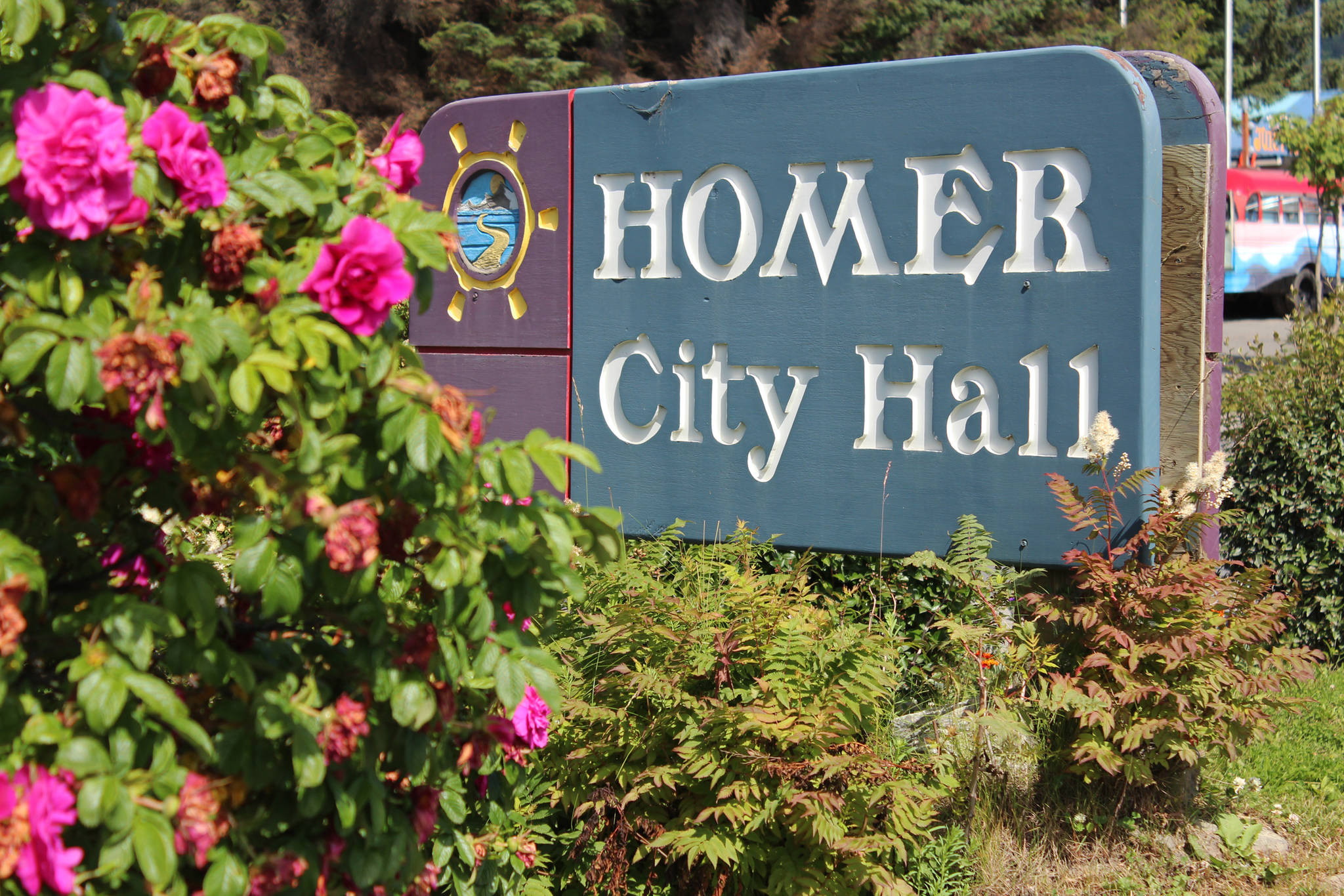The Homer City Council at its Monday meeting began to discuss, and then tabled, a future process for extending Homer water outside city limits.
For several weeks, the council has been debating the logistics and ethics of extending water service to a lot in Kachemak City where developers want to build low income housing units, when city code states Homer will not sell its water outside of city limits. At the council’s last meeting, a motion to rescind the ordinance that allows the city to do this failed. Therefore, the council has authorized the city to accept a $100,000 service fee from East End Partners LLC (the company building the low income housing) and allowing them to hook up to the city’s water main in that area.
There are 15 other lots in Kachemak City that could hook up to city water. At a special meeting to discuss the topic, some Kachemak City Council members, and members of the public, expressed that they didn’t want to treat any of the lots differently. If one lot got to hook up to Homer water, then all of them should be able to.
Council member Donna Aderhold introduced an ordinance at Monday’s meeting that would amend the city’s code where it deals with water rules and regulations. The changes to the code would require an ordinance from the city council to provide water outside city limits, as well as a resolution that adopted extraterritorial public utility agreements.
Aderhold said at the council’s committee of the whole meeting that the ordinance went through the city attorney before it came before the council.
In the ordinance, Aderhold proposed adding a new section to the “water rules and regulations” section of city code called “water service area.” According to the ordinance, it would state that “except as otherwise required by law, the extension of water service outside City boundaries is prohibited unless the extension is requested by the governing body of the outside jurisdiction via ordinance. Water may not be extended outside City boundaries unless approved by Council via ordinance or otherwise required by law.”
“The intent here is to put into code what is currently policy,” Aderhold said at the meeting. “But also lay out a clear process by which that could change. So this is just intended to just be … a lot more intentional about how we’re going to deal with water.”
Council member Heath Smith disagreed with the word “prohibited” as it was used in the proposed new section of city code.
“I do think that we do need a process and I think that, even though I disagree with our current policy, we do need to strengthen what has to be done and should be done in order to facilitate a request for water outside our boundaries,” Smith said. “I do take issue with ‘prohibiting.’ I mean, that’s a very strong word to overcome. If we’re going to use that kind of verbiage, then I think it makes it a very difficult path to kind of move past.”
Smith also said he’d prefer to wait until Kachemak City has finished working on its own proposal for a process by which to negotiate with Homer about extending water services to other lots.
“I would like to look at what they present and what we can kind of do in order to accommodate, if we can at all, depending on what they’re willing to do, before we put this kind of language into play,” he said.
Council member Rachel Lord said she wouldn’t want to set Homer policy based on what another government entity is proposing.
Council member Caroline Venuti supported the use of the word “prohibiting” as well, saying the city needs to take a strong stand in its policy.
“After all, it’s our water,” Venuti said. “And we have to be very careful with our words.”
Smith later commented that he doesn’t want Kachemak City to dictate Homer’s terms either, but that he wants more time for the Homer council to work on a future policy in order to represent the best interests of the city.
Aderhold said she’s willing to take plenty of time for Homer to get a policy in place for negotiating future sale of water outside city limits. The city needs to have this kind of policy in place, she said.
Ultimately, the council decided to postpone the ordinance.
Other actions taken at the council meeting include:
• The council voted to pass an ordinance that will appropriate about $1.7 million from the Police Station Project account to be spent on work supporting the construction project. This includes project management, design support, early site civil construction and land purchase repayment, according to the ordinance. As of right now, the design for the new station is 65 percent complete.
• Castner swore in a new class of first responders who will work at the Homer Volunteer Fire Department
• The council passed a resolution approving an Americans with Disabilities Act Transition Plan for the city. The plan, drafted by the city’s ADA Compliance Committee, identifies current barriers within Homer and outlines a schedule for improving accessibility to city buildings. The ADA Transition Plan can be read on the city’s website.
The city council’s next meeting is set for 6 p.m. on May 13.
Reach Megan Pacer at mpacer@homernews.com.


